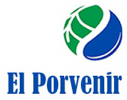| Difficult to see, but there are 15-25 people panning |
Many community members and children came to meet us and help carry the gear up to the school. Fermin had sent a message previously that we were coming, but apparently they didn't receive it. So we set a time for a town meeting for an hour later, although by that time we realized that not enough people had heard, so we rescheduled for the next morning.
| The children seemed to enjoy our antics |
James in particular was a hit with the kids, entertaining them while we set up. We brought cots with us for our luxury accommodations.
| Having a rest |
Since the meeting didn't go as planned, one of the community leaders took us to see their existing water system, which had been working, up until a few months ago.
| Existing spring capture, not clean water! |
The water system had been built some years ago by another organization, but it looks like the community had not been involved in the construction, as is our policy - so, when Hurricane Felix destroyed several parts of the system, they were unable to repair it.
| Fermin: "Should this be connected?" |
After Hurricane Felix, the Mayor's office had some emergency funds and did some repairs, but unfortunately they did not seem to take much care in them. The PVC pipes were just laid on the ground, not buried, and were susceptible to animals stepping on them and other mishaps. They had 2 plastic tanks, and they seemed in good shape though. It was interesting to hear how they got the tanks to the community. They drove to Las Piedras, then threw them in the river and guided them in a small canoe. No expensive transport in that case...
The poverty in the community was fairly evident. During the civil war, the Contras were based on the Honduran side and often came across through this region. The Nicaraguan government evacuated the community to Jinotega, which is why many of them speak very good Spanish, as well as Miskito. During the evacuation, they were only allowed to take 2 bags with them. The homes were all burned down, so the other side could not use them, I suppose. The homes have been rebuilt for years now, but they are fairly simple, mostly wood with zinc roofing. The roofing was given to them when they returned from Jinotega.
| This home had just 1 wall |
In total, there are 45 homes, 27 in and around the school, and another 18 on the other side of a small military base. There were no latrines, except one in the school that was full and one other.
| School latrine in Ulwasking |
That evening, we ate our dinner and talked to some of the community members and enjoyed the stars. With no electric lights for miles, the night sky is very impressive. During the chat, we learned that the community name was not Ulwaskin as we had previously thought, but Ulwasking. Apparently, the indigenous people in this area had called themselves Ulwas, and this particular area belonged to the king. Thus, Ulwasking. I only heard the latter part of the tale after star gazing; perhaps I can get more details in the next visit...




No comments:
Post a Comment